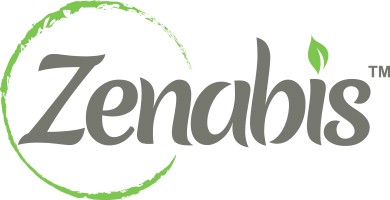Over the last few years the Canadian legal cannabis market has been flourishing as the country’s federally regulated market, at first medical and now including adult-use, leads the worldwide trend toward legalization. Some licensed producers, like Canopy Growth and Aurora Cannabis, have achieved large public valuations on the back of massive cultivation capacity. These large companies might be considered the rock stars of the industry, with smaller companies looking to carve out their own niche in a subset of the market, partner with them on distribution or supply agreements, or even get acquired by them.
Zenabis Global Inc. (TSXV: ZENA) is taking a different tack. With licensed facilities in British Columbia, New Brunswick, and Nova Scotia, near-term and large-scale expansion plans, and supply agreements in place across the country, Zenabis is aiming to take its place among Canada’s very largest licensed producers. It’s worth taking a look at this company that has flown under the radar a bit in terms of production capacity and nationwide distribution.
Existing Production and Expansion
Zenabis Global started trading on the Venture exchange January 10, 2019 after completing a reverse takeover that combined two existing businesses – Bevo Agro Inc. and Sun Pharm Investments Ltd. The resulting company boasts three licensed facilities with one more currently going through a conversion process. All told, the company is building out capacity that is expected to increase from an existing ~10,000 kg/yr to ~131,000 kg/yr by the end of summer 2019, with the eventual goal of reaching ~479,000 kg/yr when all facilities reach maximum production capacity. It’s an ambitious goal, but one that makes sense when examined more closely.
Zenabis Atholville is the company’s first facility to be licensed, in June 2017. Situated on 20 acres in New Brunswick, the 380,000 sq ft building is the largest indoor cannabis growing facility in Canada. Within that footprint, the company this year is expanding its operations in stages with anticipated full production of ~34,000 kg/yr reached by the end of summer 2019. The Atholville site, when fully set up, will be supporting extraction, processing and packaging, research and development, and a call center. It is one of the largest employers in the area, and the project has benefited greatly from the company working closely with provincial and local governments. These dynamics bode well in the hyper-local atmosphere of the Atlantic Provinces.
Zenabis Delta, located just south of Vancouver, BC, is a 25,000 sq ft building that received its license in August, 2017. With a relatively small cultivation footprint, Delta currently houses a call center and extraction equipment with an eye toward utilizing the building as a distribution center down the road. Considering its prime location near Vancouver, those plans make a lot of sense.
Zenabis Stellarton, located in Nova Scotia, received its cultivation license in March, 2019. The indoor facility offers plenty of room for expansion, with the company currently utilizing ~80,000 of the building’s 255,000 sq ft total.
The fourth facility is a major greenhouse operation in Langley, BC. Currently in the late stages of the licensing process, Zenabis Langley is comprised of just over 2 million sq ft of greenhouse cultivation space. The company is converting the massive complex in stages, with the first 10 acres expected to be in production by the end of summer 2019 (pending the appropriate licensing). If that plan comes to fruition, the company expects to be producing about 96,000 kg/yr when this portion of the conversion is fully optimized. Zenabis plans to convert the whole facility eventually, with overall production estimated at 426,000 kg/yr once complete.
Zenabis also has two major British Columbia greenhouse locations in its back pocket which do not contribute to any projections noted above, Zenabis Aldergrove is a 453,000 sq ft greenhouse site, and Zenabis Pitt Meadows is a 218,000 sq ft greenhouse operation. Both are currently in use for Bevo Ag’s legacy propagation and floral business, but could be adapted for hemp or cannabis cultivation. In fact, Zenabis has submitted an application for industrial hemp cultivation licenses for both sites. If the company goes the route of hemp cultivation, they could become a major source of hemp-derived CBD products to address that particularly explosive niche of the cannabis products industry.
Deep Cultivation Experience Enables Plan
Bevo Agro is a propagation and cultivation company that started back in 1986. The company became a fixture in BC’s vibrant agricultural market, specializing in the propagation of hundreds of unique crops at industrial scale. The company was highly successful, growing EBITDA at a compounded annual rate of about 20% from 2011 through 2018. With the merger that created Zenabis, all of that cultivation, operations, and distribution experience (along with extensive facilities including the Langley greenhouses) combine to give the new company a leg up on its aggressive move into industrial scale cannabis cultivation.
Many companies experience growing pains as they seek to move from a producer with a small initial cultivation footprint to one with much larger capacity. Hard lessons are learned, ranging from how to staff a very large operation to how to grow plants at industrial scale to how to adapt indoor growing techniques for greenhouse cultivation. Bevo Agro’s institutional experience in all of these areas gives Zenabis an advantage as it quickly scales operations.
To this point, Zenabis recently provided an update on expansion progress and the yield performance of the existing operations. Those results show that, on average, actual harvest yield has exceeded the designed capacity over the last six months by about 9%. The team is not settling for that level of overperformance, however, as Zenabis Atholville tested an alternative growing method in one flower room that resulted in a yield that outperformed expectations by a whopping 47%. It should be interesting to see how the actual yield compares to the company’s projections going forward.
Distribution Agreements in Place
With cultivation operations spanning the country, Zenabis is strategically located to serve the whole nation efficiently. This of course wouldn’t mean much without strategic supply, distribution agreements, and arrangements in place, which Zenabis has in spades. The company has inked agreements, and arrangements, with government agencies in BC, Alberta, Saskatchewan, Manitoba, Quebec, New Brunswick, PEI, Nova Scotia, and Yukon Territory.
The company also has distribution deals in place with Shoppers Drug Mart for medical cannabis products, and Pharmasave primarily for oil products. Zenabis has a number of existing and pending brands of products to serve a variety of markets: Zenabis for medical, Namaste for recreational, and Blazery for recreational. Other brands in the works include Dope Tribe, High Genics, Pet Options, and Founders Reserve. Combining the extensive distribution network with a comprehensive brand catalog could be a recipe for Zenabis’ success.
The Big Picture
There is more to talk about with Zenabis, including international plans, moves into the beverages and edibles markets, and an accomplished executive team. What has been covered today shows a company with robust existing operations and a clear plan to move, in the near term, into the upper reaches of Canadian cannabis production. That level of production, combined with extensive distribution and a broad portfolio of brands, means that Zenabis won’t be flying under the radar for much longer. 2019 promises to be a big year in the company’s development, kind of a coming out party for Zenabis as it executes on an aggressive growth strategy.











